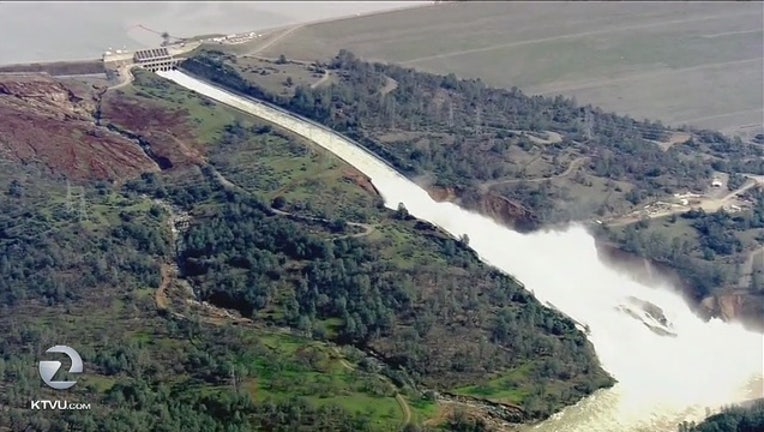Prop. 3: Californians leaning against borrowing $9 billion for water projects

File Art -- The $1.1 billion Oroville Dam spillway will be in full working order by the time rain hits this year, California water officials said.
LOS ANGELES (AP) - Californians were leaning against borrowing $9 billion for water projects in a state where water scarcity often pits city dwellers, farmers, anglers and environmentalists against one another.
With 97 precincts reporting Wednesday morning, the No on Proposition 3 vote had 52 percent of the vote.
The bond measure devoted money to storage and dam repairs, watershed and fisheries improvements, and habitat protection and restoration.
Much of the $8.9 billion was earmarked for conservancies and state parks to restore and protect watersheds, and to nonprofits and local agencies for river parkways.
There also was money for improvements to meet safe drinking water standards.
The measure was backed by agricultural and water associations and groups devoted to conserving wetlands, fish and wildlife. Together, they had contributed more than $5 million to the campaign by mid-October.
Sierra Club California and the League of Women Voters of California were among opponents who said the measure benefited special interests while siphoning money from other programs. No significant money was spent by the opposition.
Proposition 3 was the largest water bond proposal since California's nonpartisan legislative analyst began keeping track in 1970.
Less than $500 million was tagged for surface water storage and dam repairs, including $200 million to help repair Oroville Dam in Butte County, where damaged spillways last year caused the precautionary evacuation of nearly 200,000 people living downstream.
With the payback cost estimated at $430 million a year for 40 years, the legislative analyst put the total cost of the measure to state taxpayers at $17.3 billion, or about double the underlying benefit.
Local governments were projected to save about $200 million annually for water-related projects, with some matching funds required and preference given to disadvantaged communities.
Voters previously approved nearly $35 billion in bonds since 1970 for water and environmental projects, including $4 billion from a ballot measure passed in June. About a third of all funding remains unspent.

